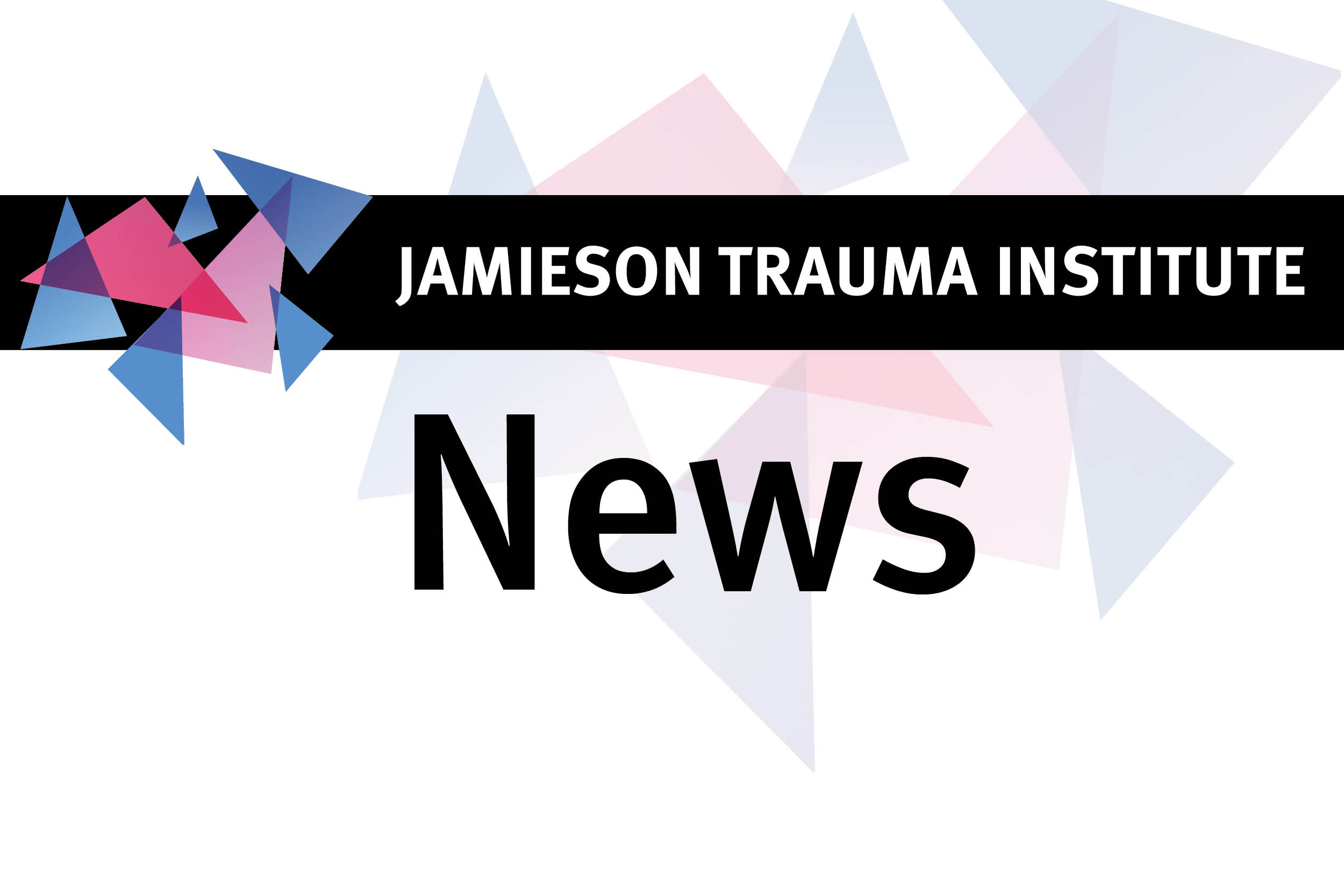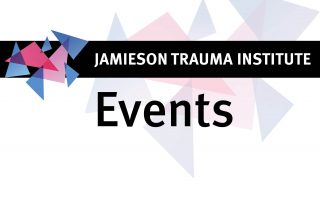JTI Funded Projects
Primary Investigator: Dr Celeste Glasgow
The aim of this PHD Scholarship is to evaluate a protocol for the management of trauma related to distal fractures through a randomised controlled trial. An economic analysis would follow the RCT to ascertain the full benefit of this new clinical pathway.
This project’s goal is to assists patient “achieve their best possible return of pre-injury functions and activities” and “recognises the need for timely and effective rehabilitation programs for people with traumatic injuries”.
Primary Investigator: Dr Mark Elcock
The purpose of this proposal is to explore the establishment of a national adult retrieval registry through a partnership between Queensland Health, the Jamieson Trauma Institute and the Motor Accident Insurance Commission, leveraging off the established data sharing capability and infrastructure of the Queensland Trauma Data Warehouse Project.
Primary Investigator: Dr Anthony Holley
Each year in Australia, approximately 1% of the population sustains a thermal injury. The great majority of these burns are minor, however patients with severe burns experience considerable morbidity and mortality. 276 serious burn patients were admitted to Australasian intensive care units from July 2017 to July 2018 (ANZICS CORE Database). Despite improvements in both surgical and critical care management, burns continue to be an extremely challenging cohort of patients to manage. There is also a significant financial burden associated with thermal injury that correlates with total body surface area involvement. There are currently several agencies that collect data on burns patients, however there is a paucity of important critical care data. There appears to be very little high-quality evidence to guide clinical practice in the critical care management of the severely burnt patient. It is possible that variability in outcomes stems from variability in practice due to lack of quality evidence and inconsistent guidelines. To quantify practice variability and strategies, we will establish a prospective critical care data base and initially collect information over a twenty four month period. This would provide a cohort of 500-600 critical care burns patients with data across four major domains including resuscitation, airway management, specific burn therapy and critical care supportive strategies.
Primary Investigator: Dr Beat Schmutz
The overall project consists of two related individual PhD projects. Project 1 will contribute to overcome limitations associated with utilising routine diagnostic 2D projection x-rays for classifying the 3D pattern of bone fractures. Project 2 will contribute to overcome current obstacles in the up-scaling of laboratory process designs and in the establishment of the required Good Manufacturing Practice (GMP) standards for the manufacturing of multi-structural, scaffolds for treating large bone defects.
Primary Investigator: Dr Christopher Futter
Head mounted displays (HMD) have the potential to improve patient safety by allowing the team leader in a trauma or other crisis situation to have continuous visualisation of patient vitals even when looking away from the anaesthetic monitors. The HMD can also allow immediate and continuous visualisation of critical response algorithms and resources which are displayed as a floating virtual screen within the operator’s field of vision. This valuable resource could be expected to increase situational awareness for the crisis team leader and improve patient outcomes through the expedient use of best practice resources and algorithms.
Primary Investigator: Dr Gary Mitchell
We hypothesise that brain origin ccfDNA measured by PCR has both high sensitivity and high specificity for the detection of mild traumatic brain injury (m-TBI).
Aim – Perform a feasibility pilot study on brain-origin ccfDNA to test sensitivity and specificity in patients with m-TBI.
The specific aims are to measure brain-origin ccfDNA in 100 adult ED patients stratified into four groups (acute stroke, seizure, acute orthopaedic injuries, m-TBI) and:
- Compare the concentrations of brain-origin ccfDNA between the groups
- Determine the sensitivity and specificity of brain-origin ccfDNA in detecting m-TBI
- Determine the rate of recruitment, retention and reasons for withdrawal of participants
- Evaluate the practicalities and logistics of collecting, storing & handling biological samples in the ED
- Evaluate the acceptability of the study to ED staff.
If ccfDNA is specific and sensitive for patients with m-TBI, we will perform a prospective multi-centre observational trial comparing the biomarker in patients who have suffered a m-TBI with or without concurrent orthopaedic injuries and compare with functional imaging and other tested biomarkers (GFAP and UCH-L1).
Primary Investigator: Dr Jason Brown
Fractional CO2 laser and Vacuum therapy are scar treatment modalities which have proven efficacy, however they are often reserved for hypertrophic scars which are resistant to first line treatment. We are looking to study the feasibility, acceptability and safety of early intervention using these two scar treatment techniques on two cohorts of patients comparing the impact of early intervention (4 weeks) compared to later intervention (6 months) on hypertrophic scar outcomes at 12 months.
Jamieson Trauma Institute
Level 13, Block 7
Royal Brisbane and Women’s Hospital
HERSTON QLD 4029
Email: Jamieson_Trauma_
Institute@health.qld.gov.au
News
Newsletter – November 2025
If we thought September was a busy month for the JTI team, October seemed to be over in a blink of an eye! On Friday 17th, we joined forces with the RBWH Trauma Service, P.A.R.T.Y, Queensland Trauma Education (QTE), Teamwork and Collaborative Training (TACT) and reps from Acumed for World Trauma Day. We also highlight the achievements of the team at the Trauma 2025 Conference in Wellington, New Zealand.
Next Event
Bone, Joint and Spine Infection Symposium
Date: 26-27 February 2026
Time: 8:00am
Venue: Owen J Wordsworth Room, Level 12, S-Block, QUT Gardens Point Campus


